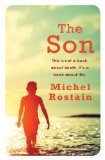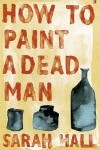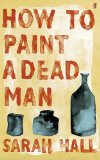 Translated from the French by Adriana Hunter
Translated from the French by Adriana Hunter
Winner of the Prix Goncourt 2011, Selected for Waterstones 11 2013
Five words from the blurb: meningitis, death, son, grief, life
Michel Rostain’s teenage son died suddenly from a virulent strain of meningitis. The Son is the fictionalised story of a family who lose their son to the same disease. It is written from the perspective of the teenage boy, Lion, and this omniscient narrator gives the book a special inquisitive perspective. The realistic nature of the text leads me to believe that much (all?) of this book is based on real events and this insight makes other books about grief seem insignificant.
This is one of the most emotionally powerful books I’ve ever read. It is one of the only books that has enabled me to completely understand what it is like to go through a devastating sequence of events. I hope I never have to experience anything like this, but if the worst happens this book has given me the comfort of knowing that life can go on afterwards.
The depth and range of emotion present in this book is breathtaking. It never becomes overly sentimental or shys away from showing the darker side of humanity. Shortcomings are open for all to see and this vulnerability only adds to emotional impact of this book.
I’ll be dead four hours later and Dad’s spending money in a supermarket. As of now, he will forever loathe the inevitable stop-off for the weekly shop. He’d always been disparaging about those nowhere-land places – shitty music, mediocre products, insidious layout, stooped ghost figures trundling from one shelf to another. But he still went every week, one of many contradictions. To think he lost some of the last few moments he could have spent with me alive – the memory of it destroys him.
The deep sadness is layered with hope; showing how friends and family can help each other through grief. It is a roller-coaster of emotion, and does have more downs than ups, but I think it is worth the emotional investment. The ending is beautiful and I only hope that Michel Rostain and his family had a similar outcome to their own tragedy.
Highly recommended.



